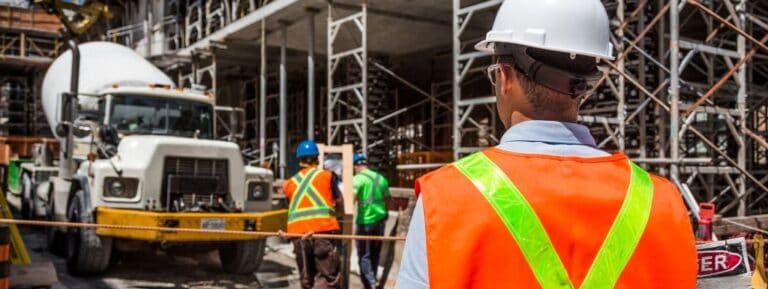Insolvent trading occurs when:
- a company that is unable to pay its debts as and when they are due and payable; and, notwithstanding
- continues to incur more debt(s) and liabilities.
The duty to prevent insolvent trading is one of the most important duties imposed on company directors and is outlined in section 588G of the Corporations Act 2001 (Cth) (Act).
Unfortunately, many company directors are unaware of the duty and it is often only through a demand issued by a Liquidator that a director becomes aware of their liability for breach of the duty to prevent insolvent trading.
Breach of the duty allows for:
- private enforcement by creditors; and
- the personal assets of the directors to be used for the repayment of the company’s debts.
WHAT ‘PERSON’S’ CAN BE CAPTURED BY THE DUTY TO PREVENT INSOLVENT TRADING?
The main ‘person’ captured by the duty to prevent insolvent trading is a company director.
However, there are other possibilities. Section 9 of the Act defines a director to include both ‘shadow’ director and ‘de facto’ director. On that basis if you:
- act as a director or give instructions to the appointed directors on how they should act, then you may be considered a ‘shadow director’; or
- are an individual who assumes the role and responsibilities of a director without being formally appointed to the position of director, then you may be considered a ‘de facto director’.
In the circumstance where:
- a company cannot pay its debts as and when they fall due and payable; and
- the company continues to incur further debt; and
- you are acting in the capacity of a director or non-executive director or shadow director or de facto director; then
- you may be liable for insolvent trading; and
- you may receive a letter of demand from a Liquidator requiring the payment of a significant sum of money, otherwise, court proceedings may be commenced against you.
ELEMENTS OF INSOLVENT TRADING
In order for a director to be held liable for insolvent trading, a liquidator will need to satisfy the following elements:
- a person is a director of a company at the time when the company incurs a debt; and
- the company is insolvent at that time, or becomes insolvent by incurring that debt, or by incurring at that time debts including that debt; and
- at that time, there are reasonable grounds for suspecting that the company is insolvent, or would so become insolvent.
On the basis that the above elements are satisfied, a Liquidator may commence proceedings against a Director to recover an amount equal to the debts the Company had (or incurred) as a result of the Director’s failure to ensure the Company did not trade whilst insolvent.
CONSEQUENECES OF INSOLVENT TRADING
Directors found to have caused insolvent trading may be liable for:
- civil penalties under sections 1317E and 1317G of the Act, including pecuniary penalties of up to $200,000.00 and a management banning order (i.e. disqualification of right to act as a director) pursuant to section 206C of the Act;
- compensation proceedings, equal to the amount of the debt(s) incurred by the Company; and / or
- criminal charges, which may include a fine of up to 2,000 penalty units and/or imprisonment for up to five (5) years.
DEFENCES TO INSOLVENT TRADING
Section 588H of the Act provides statutory defences to insolvent trading, which are that the director:
- had reasonable grounds to expect, and did expect, that the company was solvent; or
- relied on information provided by a competent and reliable person that led to the view that the company was solvent; or
- at the key time, did not take part in the management of the company because of illness or some other good reason; or
- took all reasonable steps to prevent the company from incurring the debt or making the disposition of its property.
SAFE HARBOUR
Directors in Australia have the benefit of the Safe Harbour regime (section 588GA of the Act) which aims to protect directors from a potential insolvent trading claim (and personal liability) whilst restructuring the company with expert help. A number of criteria must be satisfied to access this carve out defence.
We encourage all directors to proactively engage an appropriately qualified insolvency professional, such as our team, to understand whether this course of action is a viable option in their particular circumstance.
WHAT YOU SHOULD DO IF YOU SUSPECT FINANCIAL DIFFICULTY?
On the basis of the above, if you are a director of a company that is experiencing financial difficulty then we recommend that you obtain appropriate legal advice immediately.
Failure to take prompt action can have serious consequences.
The sooner you take proactive steps to fully inform yourself of your rights and/or options, the more likely that a better outcome may be achieved for you.
HOW CAN WE HELP YOU?
Our team of Restructuring and Insolvency experts are available to help you and your clients navigate any challenges ahead.
Whether it be a:
- preliminary discussion;
- review of your position;
- initial advice and / or safe harbour advice;
- liaising with your company accountant; or
- informing you of all options available to you;
we are here to help when you need it.
Call (07) 3009 8444 today for helpful, friendly advice.
NOTE
This article is published by Rostron Carlyle Rojas Lawyers for general information purposes only and is not intended to be legal advice. This article should not be relied on as specific advice. You should seek your own legal advice in relation to the circumstances and facts that exist in any specific situation relevant to you.



